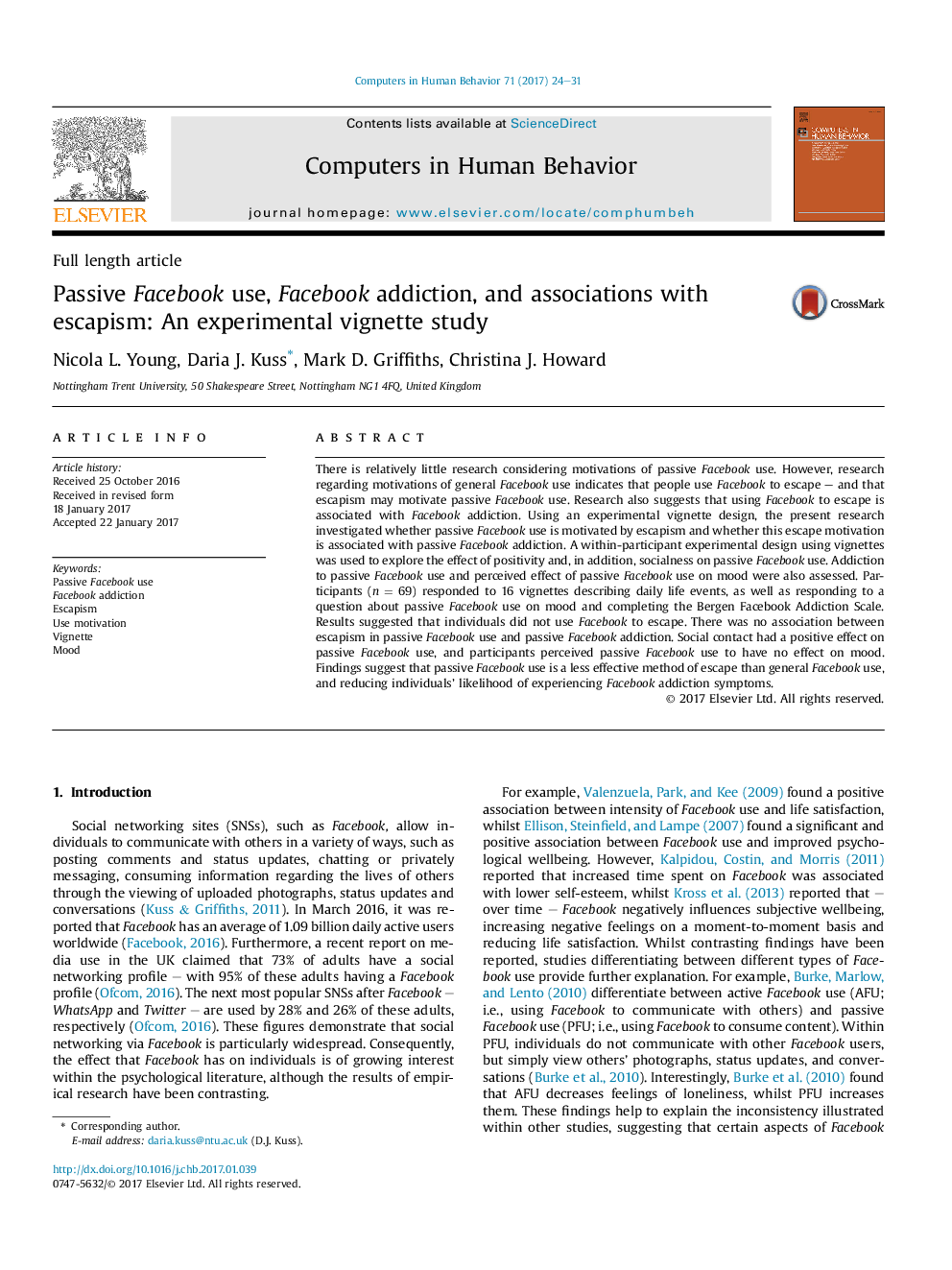| کد مقاله | کد نشریه | سال انتشار | مقاله انگلیسی | نسخه تمام متن |
|---|---|---|---|---|
| 4937338 | 1434620 | 2017 | 8 صفحه PDF | دانلود رایگان |
عنوان انگلیسی مقاله ISI
Passive Facebook use, Facebook addiction, and associations with escapism: An experimental vignette study
ترجمه فارسی عنوان
استفاده فیس بوک منفعل، اعتیاد به فیس بوک و ارتباط با فرار از زندان: یک مطالعه آزمایشی تجربی
دانلود مقاله + سفارش ترجمه
دانلود مقاله ISI انگلیسی
رایگان برای ایرانیان
کلمات کلیدی
استفاده فیزیکی منفعل، اعتیاد به فیس بوک، فراماسونری، از انگیزه استفاده کنید ویجت، حالت،
موضوعات مرتبط
مهندسی و علوم پایه
مهندسی کامپیوتر
نرم افزارهای علوم کامپیوتر
چکیده انگلیسی
There is relatively little research considering motivations of passive Facebook use. However, research regarding motivations of general Facebook use indicates that people use Facebook to escape - and that escapism may motivate passive Facebook use. Research also suggests that using Facebook to escape is associated with Facebook addiction. Using an experimental vignette design, the present research investigated whether passive Facebook use is motivated by escapism and whether this escape motivation is associated with passive Facebook addiction. A within-participant experimental design using vignettes was used to explore the effect of positivity and, in addition, socialness on passive Facebook use. Addiction to passive Facebook use and perceived effect of passive Facebook use on mood were also assessed. Participants (n = 69) responded to 16 vignettes describing daily life events, as well as responding to a question about passive Facebook use on mood and completing the Bergen Facebook Addiction Scale. Results suggested that individuals did not use Facebook to escape. There was no association between escapism in passive Facebook use and passive Facebook addiction. Social contact had a positive effect on passive Facebook use, and participants perceived passive Facebook use to have no effect on mood. Findings suggest that passive Facebook use is a less effective method of escape than general Facebook use, and reducing individuals' likelihood of experiencing Facebook addiction symptoms.
ناشر
Database: Elsevier - ScienceDirect (ساینس دایرکت)
Journal: Computers in Human Behavior - Volume 71, June 2017, Pages 24-31
Journal: Computers in Human Behavior - Volume 71, June 2017, Pages 24-31
نویسندگان
Nicola L. Young, Daria J. Kuss, Mark D. Griffiths, Christina J. Howard,
